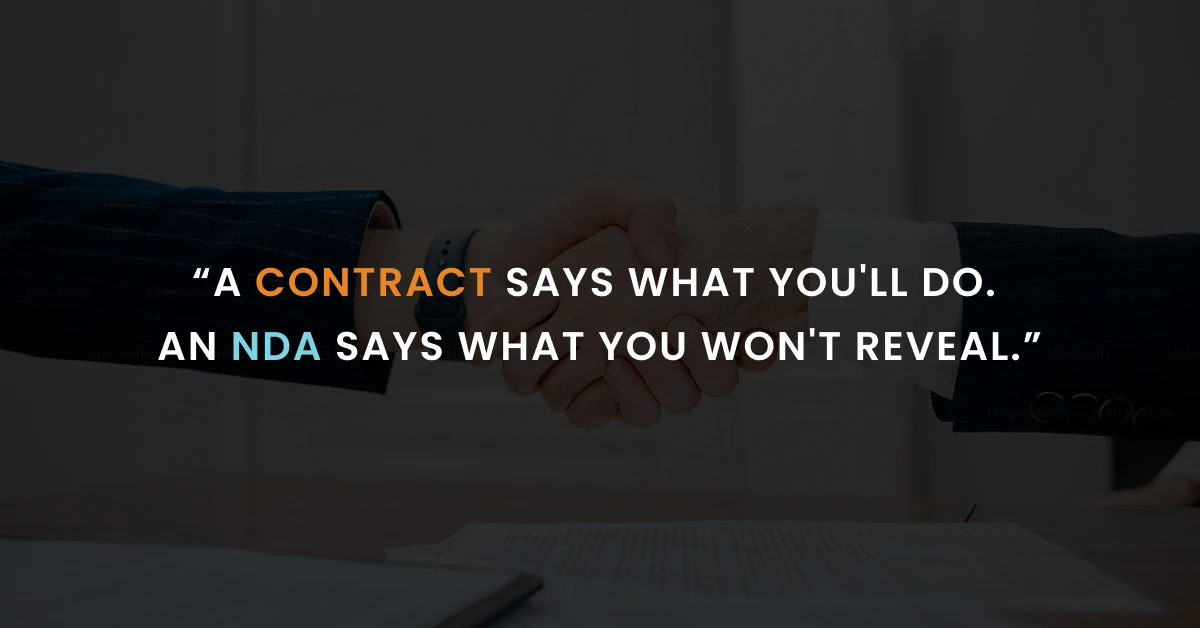 Share Your Requirements
Share Your Requirements
A Non-Disclosure Agreement (NDA) is a part of legal agreement used to protect confidential information. While all NDAs are contracts, not all contracts are NDAs. A standard contract may cover deliverables, payments, or terms of service, but an NDA zeroes in on secrecy and controlled information sharing.
In simpler terms:

💡 Definition Box
NDA (Non-Disclosure Agreement): A legal document where one or more parties agree not to disclose confidential information shared during a business relationship.
Users often ask: “Can't I just say the information is private?”
Here's why relying on verbal agreement or general contract clauses isn't enough:
*Did you know the difference between NDA and Confidentiality Agreement?
NDAs (Non-Disclosure Agreements) are especially useful when:
Absolutely. While saying "no" might be an informal boundary, NDAs establish a formal, legal framework.
Here's what makes NDAs different:
At Oodles, we understand that every client comes with different comfort levels. While we recommend Non-Disclosure Agreements (NDAs) for IP-sensitive engagements, we also respect clients' decisions to opt out.
Here's how we navigate it:
“The goal isn't to force legal paperwork—it's to ensure mutual clarity and respect.”
**Watch how Legal Agreements Protect your Confidential Data.**
We checked trending queries from Reddit, Quora, and Google's PAA (People Also Ask):
Q1. What's the main purpose of an NDA?
An NDA safeguards confidential information shared between parties during business interactions. It builds trust and establishes legal obligations that prevent data misuse or leakage.
Q2. Can I use an NDA instead of a full contract?
An NDA complements a contract but cannot replace it. Contracts define scope, timelines, and compensation, while NDAs specifically handle confidentiality clauses and data protection.
Q3. Is an NDA legally enforceable?
Yes, as long as the NDA is clearly worded, signed by all parties involved, and complies with the governing laws stated within the agreement. Courts recognize NDAs as valid contracts.
Q4. What if the other party breaks the NDA?
If the NDA is breached, legal remedies include monetary compensation, injunctive relief, or court-ordered action to stop further disclosure. The type of remedy depends on the breach's impact.
Q5. Do all projects require NDAs?
No. While NDAs are useful for sensitive collaborations, not all projects demand them. At Oodles, clients can choose based on confidentiality needs. We still follow internal data protocols.